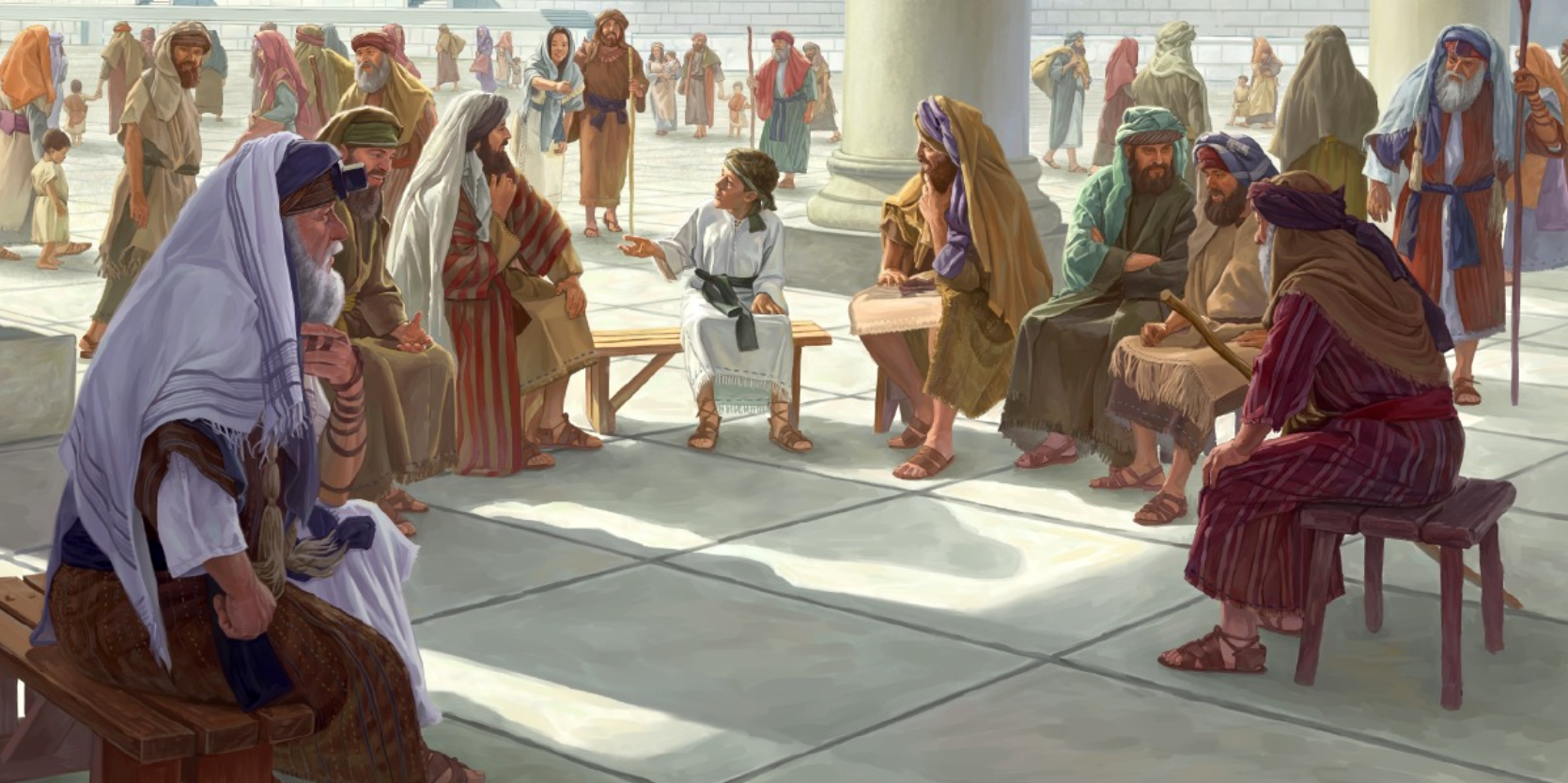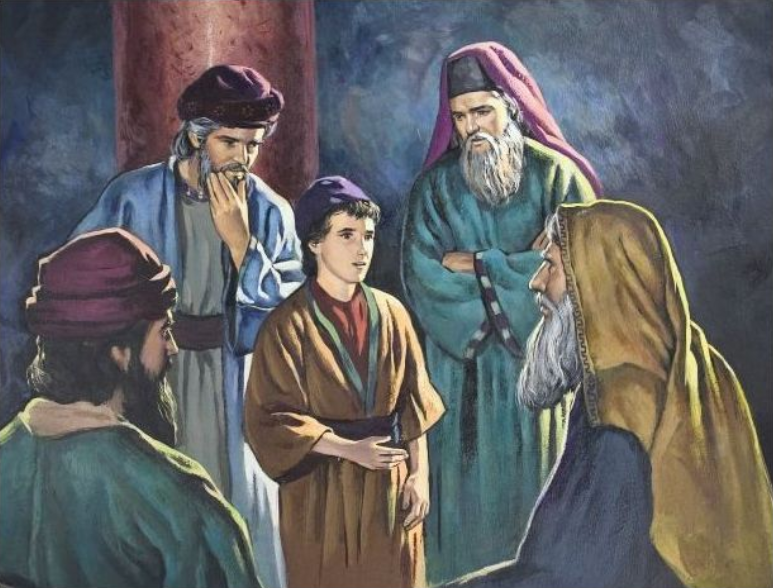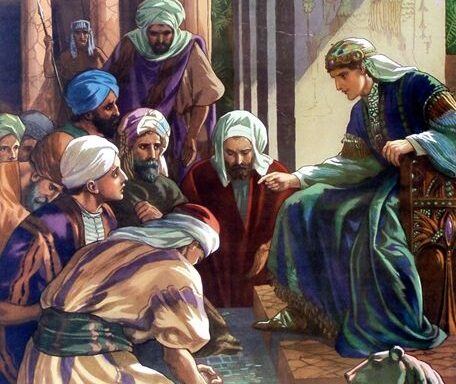
Editor’s note: The following comprises the second chapter, seventh part, of The Gospel of Luke: An Exposition, by Charles R. Erdman (published 1936). All spelling in the original.
G. The Boy Jesus at Jerusalem (Luke 2:41-52)
____________________________________________________________________________
It has been said that the boyhood of Jesus is like a walled garden from which we have been given but a single flower, but this is so fragrant as to fill our hearts with a longing to enter within the secret inclosure. We have but a single incident of his boyhood days; it is recorded for us only by Luke, a visit to Jerusalem paid by Jesus when he was twelve years old. At about this age a young Jew became a “son of the law” and began to observe its requirements, among which were the pilgrimages to the holy city to observe the sacred feasts. On this first visit to Jerusalem, Jesus was unintentionally left behind by his parents as they started on their return journey to Nazareth. At the end of the first day they failed to find him in the long caravan which was moving northward toward Galilee. The day following, Mary and Joseph returned to Jerusalem, and on the third day they discovered Jesus in the Temple in the midst of the teachers who were surprised at his knowledge of the sacred Scriptures. There was an implied rebuke in the words of Mary, “Son, why hast thou thus dealt with us? behold, thy father and I sought thee sorrowing?” In the reply of Jesus there was something of surprise and also of reproof, yet there were deep undertones of love, of spiritual vision, and of solemn resolve: “How is it that ye sought me? knew ye not that I must be in my Father’s house?”
These are the first recorded words of Jesus and they are an index and an explanation of his entire career; for their preservation this story was recorded by Luke. If they contained a rebuke for Mary, it must have been conveyed in accents of reverence and affection; and was there not involved a delicate compliment? Jesus does not reprove his parents for seeking him, but for not seeking him in the Temple first of all; and does he not seem to have implied that his parents had taught him to love the house of God and to delight in the law of God? He was saying in effect: “Why thus did you seek me? Why did you not remember that the Temple is the very place where I should be found?”
These words are thus a revelation of the life in the home at Nazareth. It was not by a miracle or due to some divine attribute, but because of the training he had received from his pious parents, that Jesus at the age of twelve was a master of the Scriptures, and had learned to reverence and adore all that was related to them and to the worship of God. Is it not possible for parents to-day to awaken in the hearts of their children a love for the house and the Word and the will of God?
These words, further, were a revelation of the consciousness of divine sonship. Jesus already realized that in a unique sense God was his own Father, the true source of his being. He instantly corrected the words of Mary, “thy father,” which referred to Joseph, with his own words “my Father,” which referred to God. Luke depicts Jesus as the ideal Man, but always as one conscious that he was the Son of God.
Our children should learn to regard God as their Father, not in the unique sense employed by Jesus as the eternal Son, nor yet in the sense which can apply to all created beings, but as denoting that intimate relationship with God made possible for believers through Jesus Christ our Lord.
Most important of all, these words are the revelation of a firm resolve, of a great molding purpose; Jesus perceived that it was his duty to be in the house of his Father—not merely in the literal Temple, but in the sphere of life and activity of which the Temple was the great expression and symbol and sign. He had determined, that is, to devote all his thoughts and energies and powers to the definite service of God. At the age of twelve are not most children sufficiently mature to form a somewhat similar purpose and to recognize in the service of God the supreme and comprehensive duty of every life?
With this definite ideal in mind Jesus returned to Nazareth and continued to live in submission to his parents, toiling for eighteen years as a carpenter and in the quiet retirement of an obscure village receiving a training for his public career which would have been impossible amidst the formalism and the distractions of Jerusalem. His development was as natural as it was perfect; he “advanced in wisdom and stature, and in favor with God and men;” his bodily and mental growth were no more marked than his increasing charm and spiritual power. Such development is possible in the humblest sphere for those whose lives are yielded to the will of God.









